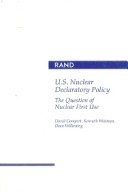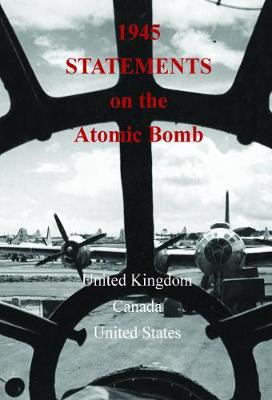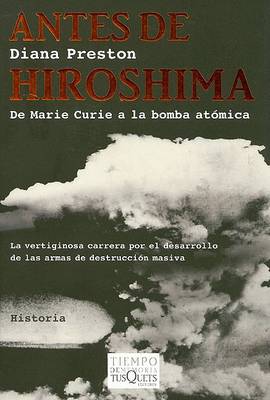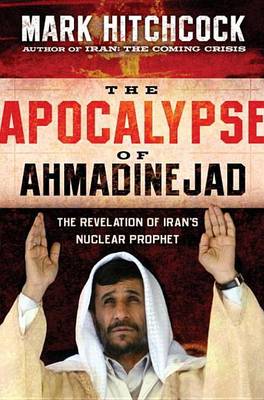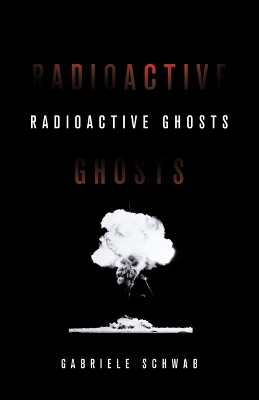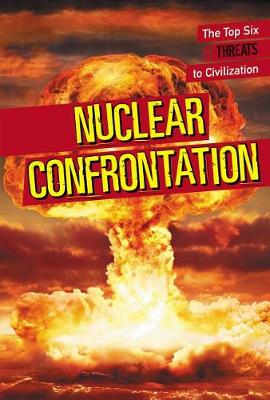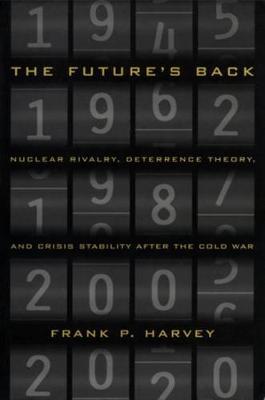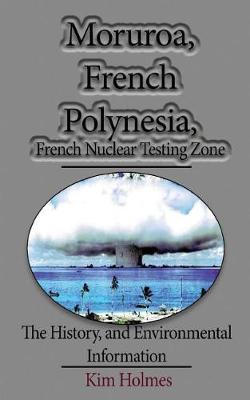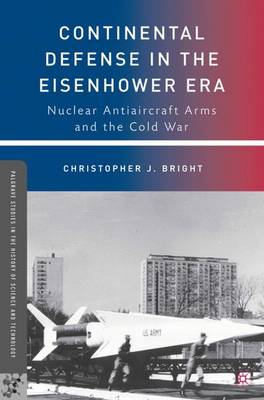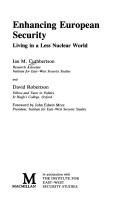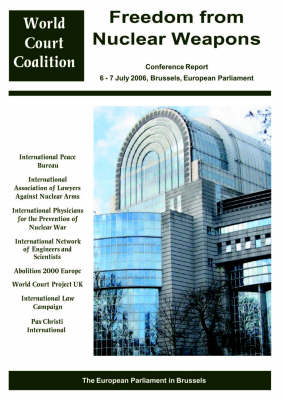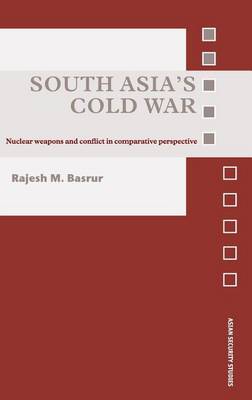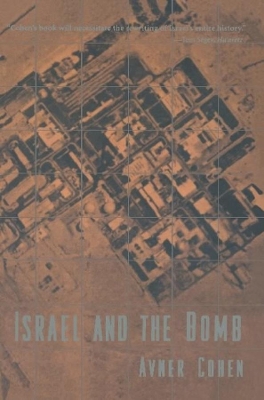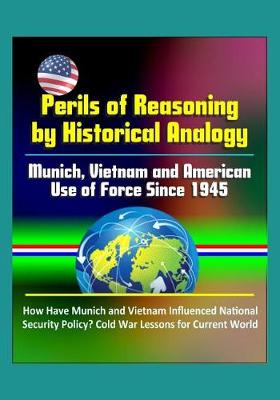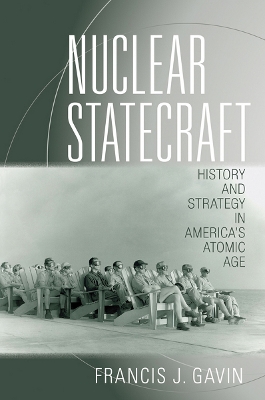Security of Radioactive Sources (IAEA Nuclear Security)
There are concerns that terrorist or criminal groups could gain access to high activity radioactive sources and use these sources maliciously. The IAEA is working with Member States to increase control, accounting and security of radioactive sources to prevent their malicious use and the associated potential consequences. Based on extensive input from technical and legal experts, this Implementing Guide sets forth guidance on the security of sources and will serve as a useful tool for legislator...
A pioneering examination of nuclear trauma, the continuing and new nuclear peril, and the subjectivities they generate Amid resurgent calls for widespread nuclear energy and “limited nuclear war,” the populations that must live with the consequences of these decisions are increasingly insecure. The nuclear peril combined with the looming threat of climate change means that we are seeing the formation of a new kind of subjectivity: humans who are in a position of perpetual ontological insecurity....
This edited volume explores competing perspectives on the impact of nuclear weapons proliferation on the South Asian security environment. The spread of nuclear weapons is one of the world's foremost security concerns. The effect of nuclear weapons on the behaviour of newly nuclear states, and the potential for future international crises, are of particular concern. As a region of burgeoning economic and political importance, South Asia offers a crucial test of proliferation's effects on the cr...
Nuclear Confrontation (Top Six Threats to Civilization)
by Erin L McCoy
Arguing that previous critiques of rational choice and deterrence theory are not convincing, Frank Harvey constructs a new set of empirical tests of rational deterrence theory to illuminate patterns of interaction between rival nuclear powers. He analyses the crisis management techniques used by the United States and the Soviet Union in twenty-eight post-war crises and isolates factors that promote or inhibit escalation of these crises. This "crises"-based data set serves as the basis for identi...
This elegant narrative edition of Neil Kagan's best-selling Eyewitness to World War II offers incredible first-person stories and amazing moments of heroism, providing new context and perspective on history's greatest conflict. The unforgettable story of World War II is told through the words of those who lived it--both on the battlefield and the home front--creating a dramatic tapestry of the wartime experience. Personal writings and recollections of Roosevelt, Hitler, and Patton, as well as...
Moruroa, French Polynesia, French Nuclear Testing Zone
by Kim Holmes
Future of the Trident System (Liberal Democrat Consultation Papers, #83)
The twin atomic bombs that savaged Hiroshima and Nagasaki showed a horrified world what a Third World War might look like; its survivors even included British prisoners of war. Philosophers and politicians sought to come to terms with the new weaponry. As the Cold War began, and especially the Korean War in 1950, the UK set up the Civil Defence Corps, mainly of volunteers, much like Air Raid Precautions of the 1939-45 war. At local, regional, and national level, exercises to test preparedness fo...
The Minimum Means of Reprisal (American Academy Studies in Global Security)
by Jeffrey Lewis
An analysis of China's nuclear and space capabilities, deployment strategies, and stance in arms control negotiations, and the implications for U.S. defense strategy. In The Minimum Means of Reprisal, Jeffrey Lewis examines China's nuclear and space capabilities and deployment strategies, as well as the Chinese government's stance in arms control negotiations. Lewis finds that Chinese officials hold a "restrained view" about the role of nuclear weapons in national security and maintain a limit...
Continental Defense in the Eisenhower Era (Palgrave Studies in the History of Science and Technology)
by C. Bright
Thousands of nuclear antiaircraft arms were designed, tested and deployed in the United States during Dwight D. Eisenhower's presidency. These Army "Nike-Hercules" missiles, Air Force "Genie" rockets, and "BOMARC" and "Falcon" missiles were meant to counter a raid by attacking Soviet bombers. U.S. policy makers believed that the American weapons could safely compensate for technological limitations which otherwise made it difficult to destroy high flying, fast moving airplanes. By recounting off...
Although the authors believe that the level of both conventional and nuclear forces in Europe should and will be reduced, they do not consider that the military instrument will have lost all of its value in European political affairs. They still see a need to be prepared for tension and conflict between the two alliances in Europe, and between the United States and the Soviet Union. They make specific, selective recommendations for targets of force reductions, with particular emphasis on the sup...
Safety of Nuclear Fuel Cycle Facilities (Coleccion de normas de seguridad)
South Asia's Cold War: Nuclear Weapons and Conflict in Comparative Perspective
by Rajesh Basrur
Nuclear-weapon-free Zones in the 21st Century
Until now, there has been no detailed account of Israel's nuclear history. Previous treatments of the subject relied heavily on rumors, leaks, and journalistic speculations. But with Israel and the Bomb, Avner Cohen has forged an interpretive political history that draws on thousands of American and Israeli government documents-most of them recently declassified and never before cited-and more than one hundred interviews with key individuals who played important roles in this story. Cohen reveal...
Perils of Reasoning by Historical Analogy
by U S Military, Department of Defense (Dod), and U S Government
Nuclear Statecraft (Cornell Studies in Security Affairs)
by Francis J. Gavin
We are at a critical juncture in world politics. Nuclear strategy and policy have risen to the top of the global policy agenda, and issues ranging from a nuclear Iran to the global zero movement are generating sharp debate. The historical origins of our contemporary nuclear world are deeply consequential for contemporary policy, but it is crucial that decisions are made on the basis of fact rather than myth and misapprehension. In Nuclear Statecraft, Francis J. Gavin challenges key elements of t...
